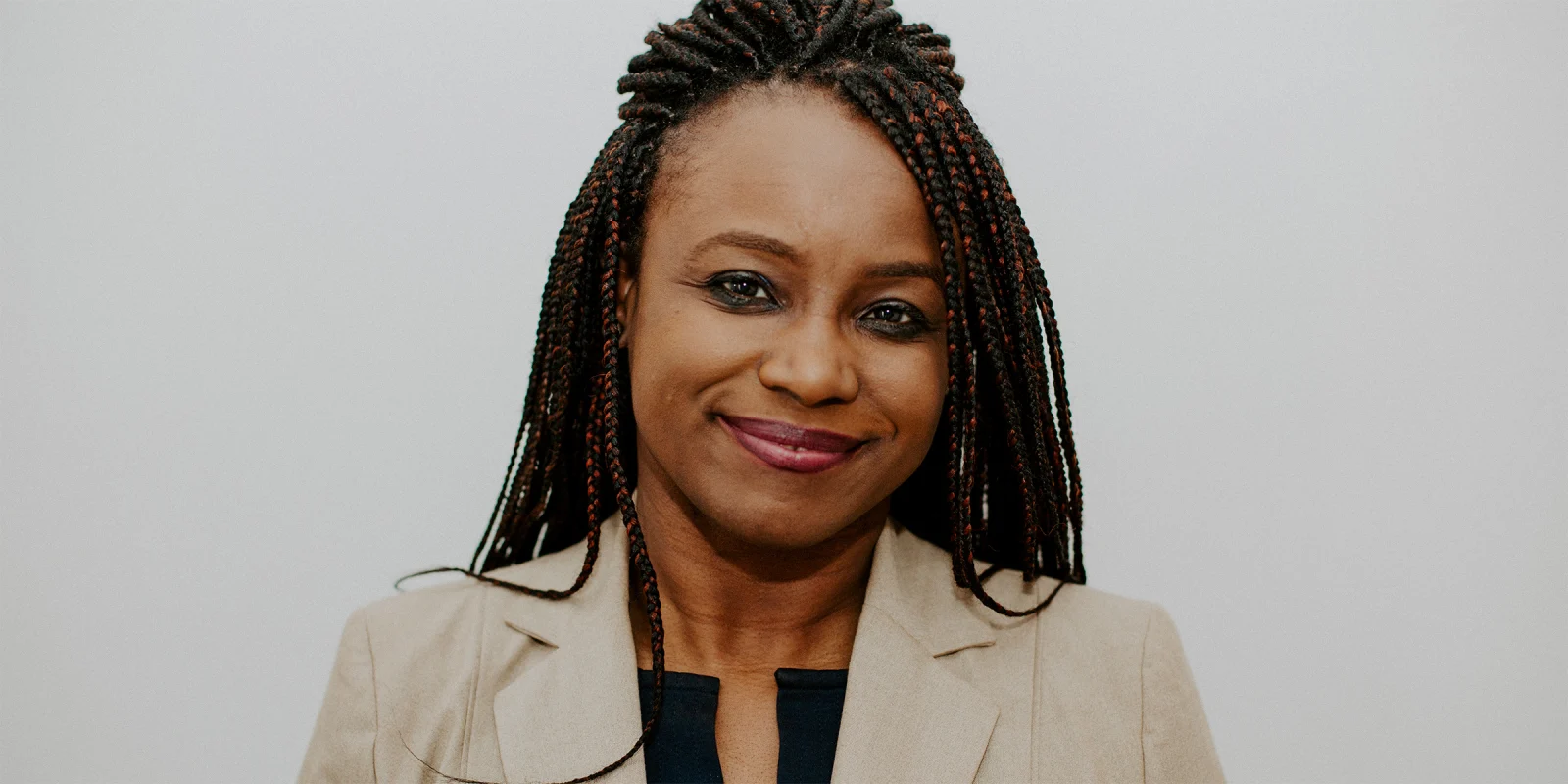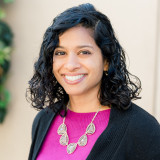An outbreak of a deadly disease, a race to discover a treatment, and a vaccine. What sounds like a plot to a thriller movie has become our reality in the COVID-19 world. But it isn’t new to Dr. Linda Mobula. As a senior health specialist with the World Bank, Dr. Mobula has worked on outbreak preparedness and humanitarian responses throughout the world: post-earthquake response and cholera in Haiti, a typhoon in the Philippines, and Ebola outbreaks in several countries.
“My family is originally from the Democratic Republic of Congo,” Dr. Mobula shared. “I’m a first generation American. My parents moved to Arizona right before I was born.” When she was 9 years old, the family moved to the capital city of Kinshasa. A civil war broke out seven years later. The government was overthrown, and rebels shut down access to water and electricity. While Kinshasa was largely spared from the conflict, the experiences of fear and desire to help others stuck with her.
Dr. Mobula returned to the U.S. for college and medical school, but she knew she wanted to practice in low-income settings. When Haiti suffered a devastating earthquake in 2010, she was compelled to volunteer her medical skills. Dr. Mobula eventually moved to Haiti for a year, where she managed a primary care clinic, treated cholera patients, and established a maternal and child health program. She quickly realized she needed training in public health to navigate the internal struggle between helping an individual and helping many.
Dr. Mobula studied public health policy and set out for Liberia in 2014. “My colleague, Kent Brantley, ended up contracting Ebola,” she recalled. “He was the first American to get it, and I ended up treating him, which was an overwhelming experience. He was a physician like myself and he had a family. I thought he was going to die. And it really hit me. We were all overcome by fear because nobody truly understood what was going to happen.” That outbreak would become the largest worldwide Ebola outbreak in history. Thankfully, Dr. Brantley recovered.
Undeterred, Dr. Mobula continued her work with international health nonprofits and the infectious disease unit of the United States Agency for International Development (USAID). She was deployed to Guinea to respond to Ebola. “I started working on a PPE stockpile and how to establish a program that would help nongovernmental organizations respond to large-scale outbreaks. It was really timely,” she said. She drew upon this experience for future Ebola and COVID-19 outbreaks.
“It’s interesting because I went from treating patients to focusing on global public health policy and strategy. There are times I really miss practicing medicine,” reflected Dr. Mobula. “But I think this is just as important because I get to bring my field experience of treating patients to help develop policy, strategy, and help inform budgeting.”
Today, Dr. Mobula is based in Congo and working on responses to COVID-19 and the 11th Ebola outbreak at the same time. She’s also leading a regional preparedness program that consolidates lessons learned from Ebola and COVID-19 to help create plans for future outbreaks in Congo. “I think a lot of what we’re seeing with the COVID-19 response, in terms of accelerating research on vaccines and treatments, those lessons came from the Democratic Republic of Congo Ebola outbreak,” she said. “A lot of lessons can be learned from outbreaks in West Africa about how to quickly conduct research during an outbreak.”
The global community can benefit from these lessons and the experience of outbreak response in Africa. “I think one of the biggest lessons learned is to involve the community early on, or you’re not going to have trust in your institutions,” shared Dr. Mobula. “You can have a great public health strategy on paper, but if you don’t involve communities very early on and get their feedback and engage with them so they can understand the importance of public health measures, you’re not going to get anywhere.”
This lesson came to life for Dr. Mobula in a Congolese village many years ago. “I remember going to Mambasa and one of the village chiefs telling us, ‘You can come here and do contact tracing, but if you don’t come to me first, as outsiders you’ll have no impact,’” she remembered. A key strategy was to recruit community health workers from within the village and build their capacity to have a strong surveillance program.
Trust is essential when it comes to outbreak and disaster response, and it takes time and effort to build, advised Dr. Mobula. How can researchers and policymakers earn that trust? “You have to listen to and understand their concerns. Empathy goes a long way, as does not having a top-down approach,” she said. Her team was initially met with suspicion from villagers who did not want to participate in contact tracing. She noted, “With marginalized communities, you have to make sure you meet their other needs. They have to work, care for their children, provide food, and pay for school. People would run away from contact tracers.”
After multiple conversations, she learned that villagers feared not being able to work in the field if they were on a contact tracing list. The response leader arranged for them to still be able to work but have their temperature monitored. The U.N. World Food Programme delivered food so villagers could limit their movement during an outbreak. “It’s common sense, right?” asked Dr. Mobula. “We don’t realize the impact that just putting someone on a contact tracing list has on a person that’s been marginalized and lived in a war zone for more than 20 years.”
Dr. Mobula believes that the U.S. can learn a lot from low- and middle-income countries. “The U.S. has invested in international health programs, but not enough in public health domestically,” she said. “Everybody thinks that public health is just science, but it’s more than just that. I think you have to look at the socioeconomic impact that an outbreak is having on a community or in a household, as well. Investing in community-based health programs in the U.S. is going to be extremely critical in having a stronger public health program.”
To form a complete picture of a community, Mobula says that public health professionals need to understand who they are and what situations they face. “In the U.S., especially, COVID-19 has disproportionately affected people of color. And unless you have trusted members of these communities involved, you’re not going to make any progress.” Community engagement is key. “You can have a great vaccine with great efficacy, but if no one trusts it, no one will access it,” she cautioned.
Community health workers have proved to be successful in developing nations, despite being underfunded — they’re often volunteers or paid very little. Dr. Mobula shared the wisdom she gleaned from talking to a community health worker: “‘If you help us with income-generating activities, we're able to sustain ourselves, stay in the work we do, and help with outbreaks and risk communication.’ Not just for outbreaks, but also for malaria and maternal and child health. So I think that was the ‘aha’ moment. Solutions come from the community. They have their own solutions. We just have to listen.”
What was an 'aha' moment in your medical career?
Which women in medicine would you like to read about? Share your suggestions or nominate someone.







